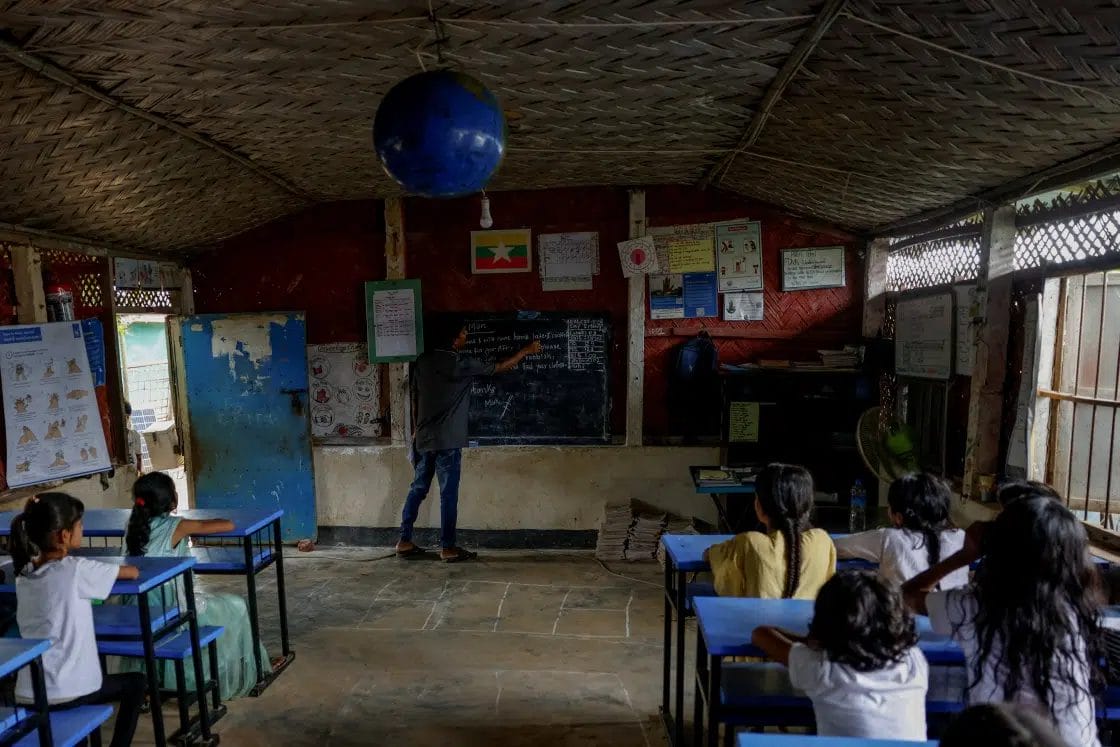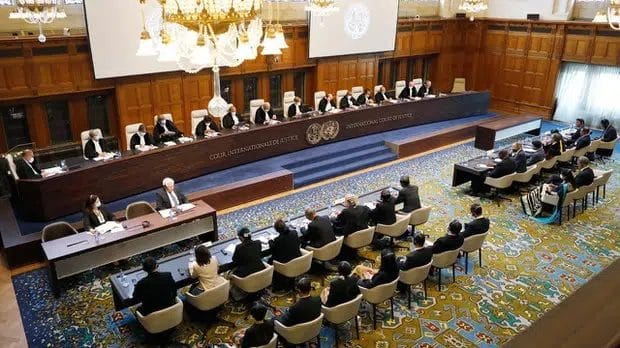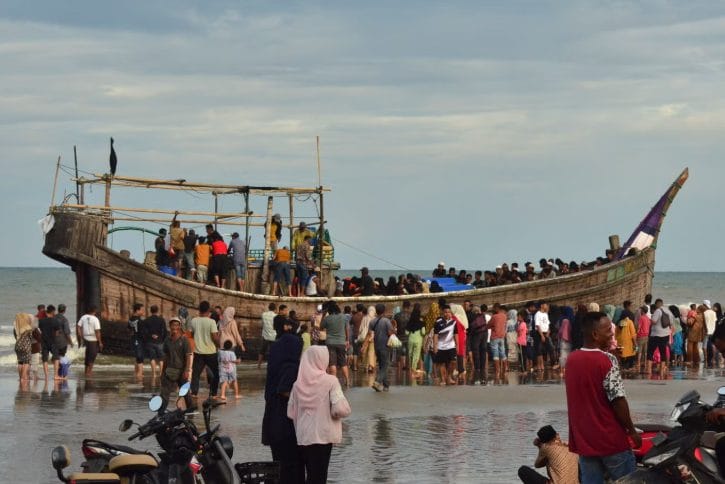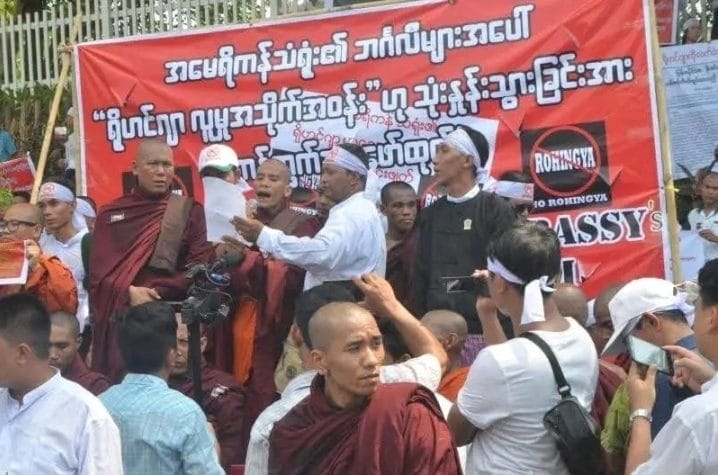Arakan News Agency
The United Nations and international organizations have warned that cuts to humanitarian funding in Rohingya refugee camps in Bangladesh threaten to deprive nearly half a million children of education, in addition to reducing food rations and essential services. This has driven families to marry off underage girls, just ahead of the eighth anniversary of the mass displacement from Myanmar in 2017.
Juliette Morkiesoni, Acting Representative of the UN Refugee Agency, said that the Rohingya community faces a severe funding shortfall that threatens its survival. She stressed that food, health, and education services in the camps could collapse unless urgent additional support is provided, noting that only 38% of the required $256 million has been raised this year, the lowest level in six years.
UNICEF halted more than 4,500 learning centers in June, leaving over 227,500 children without schooling. Around 1,200 Bangladeshi teachers and dozens of Rohingya teachers lost their jobs. The International Rescue Committee noted that the lack of education and services has led to a 3% increase in child marriages and a 7% increase in child labor during this year alone.
The crisis is embodied in the stories of families in the camps. One woman, who declined to be named, said she was forced to marry off her 16-year-old daughter after her school closed: “Without school, girls sit idle. Marriage was the only option.”
Mohammed Farooq, a father of six, expressed his disappointment: “We survived genocide in Myanmar, but now our children’s future is being silently destroyed.” Nasir Khan, a Rohingya teacher who lost his job after the shutdown of learning centers, said: “The children are forgetting everything they learned. They sit in the mud with no purpose. They are a lost generation.”
Kifayatullah, a 45-year-old math teacher, explained: “I dreamed my students would become doctors and engineers. Now, with no classrooms, their dreams are burning like our homes that were torched in Myanmar.” Nine-year-old Nahema Bibi said her dream of becoming a doctor is fading: “If I can’t go to school, how will I become a doctor? My heart feels sad.”
Relief agencies warn that the crisis will push more families into harsh survival strategies, such as marrying off minors and child labor, while tens of thousands continue to flee to Cox’s Bazar from violence in Myanmar, increasing pressure on humanitarian services.
Over one million Rohingya have fled from Arakan State in western Myanmar in recent years, after the Myanmar military launched a campaign of genocide against them in 2017. In November 2023, the Buddhist Arakan militias (Arakan Army) launched a military campaign to seize control of the state, subjecting Rohingya civilians to further violence, displacement, and forced recruitment. Most now live in crowded camps in Bangladesh, while some attempt to move to other countries in search of better living conditions.

















